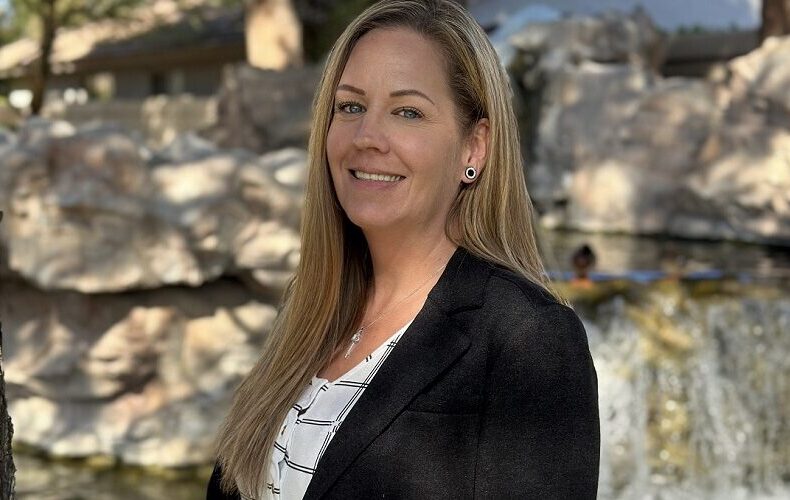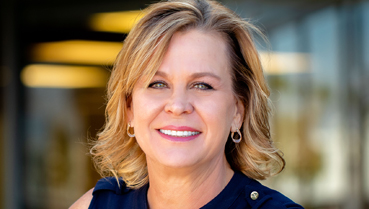Opinion: Ensuring every woman is seen
Originally published on GlendaleStar.com
I’ll be honest: I’ve met every Women’s History Month for the past 10 years with an eye roll. It’s not because I don’t acknowledge the monumental contributions of women around the world. I absolutely do. It’s because I’ve never felt seen during it.
Each year, as the month rolls around, there’s a resounding call to action — support more women, champion equity, celebrate diversity. And yet, I can’t help but feel that I’m not one of the women they’re talking about. From my standpoint, Women’s History Month is well-intentioned, but there are gaps in its application, particularly when it comes to representing and advocating for all women, including those who are or were incarcerated.
It’s crushing to witness these gaps in understanding and support, especially in 2025. Every so often, you might hear about a former “convict” who has dramatically turned her life around and is now on the front lines, advocating for change. This is indeed inspiring, and I’m genuinely grateful for these women who, like me, choose to wear their past incarcerations not as a mark of shame but as a badge of courage, all for the greater good of our community. The stories resonate, drawing attention and momentarily stirring the public’s conscience. I’ve been that person at conferences, the so-called “star of the show,” where people approach me with admiration, wanting to shake my hand or share my story on social media. They call me “inspiring.” And while I sincerely appreciate these gestures, I often wonder about the next steps. What happens after the applause dies down?
This brings me to a critical point: the role of female leaders and influencers who have never experienced incarceration. Their silence on these matters is palpable. Where are their voices advocating for systemic changes that would benefit my community? It appears that, despite their best intentions in other areas of DE&I, the struggles of incarcerated and formerly incarcerated women remain largely invisible to them. This oversight is an in-your-face reminder of how certain communities — my community — are consistently overlooked, our voices unheard, and our needs unaddressed in the broader narrative of gender equity and inclusion.
The statistics paint a bleak picture: incarcerated women represent the fastest-growing segment of the prison population, with over 60% facing unemployment after release and a significant number reentering the system within three years. These are real women — mothers, daughters, sisters — caught in a mostly ignored cycle, endangering their futures and those of their children. Are they not worthy of the same support and solidarity many women openly advocate for?
My journey from incarceration to reintegration has shown me the critical need for targeted support and opportunities. By understanding and addressing these challenges, we can begin to break the cycle of reconviction and pave the way for genuine, lasting change. Yet the urgency to address this issue remains absent from many conversations on diversity and inclusion. My story has been one of both hardship and fortuitous opportunities, having been lucky enough to engage with a for-profit company that ethically utilizes prison labor. This experience highlights the potential for positive change when efforts are made to truly understand and invest in this marginalized community.
However, this glimmer of hope is often overshadowed by skepticism and criticism. A concerning trend among some media and critics has emerged: a shift from impartial journalism to activism, where sensational narratives overshadow the nuanced realities of prison labor. This approach not only risks undermining initiatives critical to rehabilitating and supporting incarcerated women but also does a disservice to those of us directly impacted. Without a genuine effort to engage, to ask the deeper questions, or to consider the nuances of rehabilitation and support initiatives, it feels like an injustice. It’s devastating to witness the very programs that offer a lifeline to many incarcerated women — myself included — being dismissed not through thoughtful critique aimed at improvement but through sensationalism that disregards the potential for positive change. As someone who has navigated these experiences, I’ve seen how such narratives can obscure the real stories of struggle and resilience, leaving crucial opportunities for positive change untapped.
Change begins with awareness, empathy, and the willingness to embrace all women, regardless of their past or present circumstances. It’s about driving through, not around, the communities that society has long chosen to ignore. This Women’s History Month, let’s challenge ourselves to redefine what inclusivity truly means. By extending our support beyond traditional narratives to embrace all women, especially those shadowed by incarceration, we ignite a more profound change. These women, navigating the daunting path of reentry, embody resilience and determination. Yet, despite their strength, they remain sidelined in discussions on gender equity. It’s time to shift our focus and actions toward inclusivity that encompasses every woman’s story, recognizing that support should not be selective but universal.


